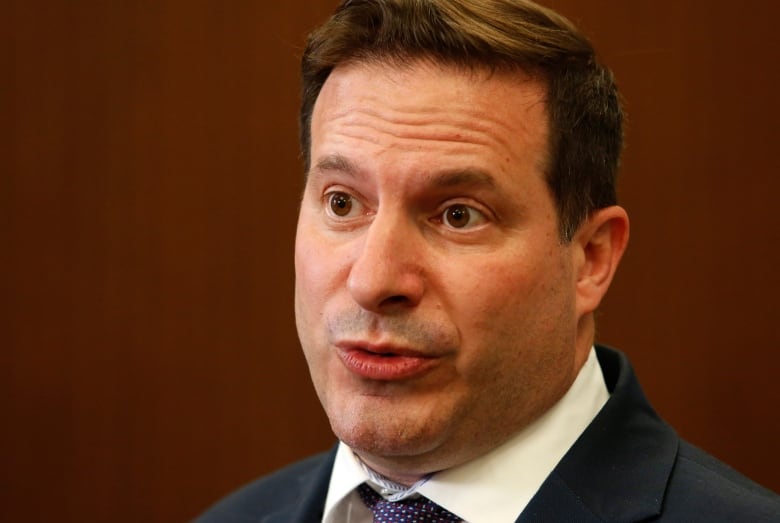
The inquiry into the federal government’s use of emergency powers to respond to anti-COVID-19 vaccine mandate protests that blocked trade corridors and gridlocked parts of downtown Ottawa this past winter will hear from two senior cabinet ministers today.
Public Safety Minister Marco Mendicino and Intergovernmental Affairs Minister Dominic LeBlanc will state their cases for the government invoking the Emergencies Act when they appear before the Public Order Emergency Commission.
Mendicino is likely to face questions about his past comments regarding the advice the government was given about using the Act.

In the spring, the public safety minister told a parliamentary committee that police recommended the government turn to emergency powers to end the protests.
“The advice we were getting was that law enforcement needed the Emergencies Act,” Mendicino said at the time.
But in testimony before the inquiry, no police force has reported asking for the Act to be invoked.
Ottawa interim police chief Steve Bell told the commission he didn’t ask for the deployment of the Emergencies Act. Carson Pardy, a now-retired Ontario Provincial Police chief superintendent, told the inquiry he didn’t think the emergency powers were necessary.
RCMP Commissioner Brenda Lucki told the commission that on the eve of the federal government invoking the Emergencies Act, she told Mendicino’s chief of staff that she felt police had not exhausted all legal tools to end the protest. The prime minister’s national security adviser, Jody Thomas, has disputed Lucki’s claim.
CSIS Director David Vigneault told the commission Monday that he advised Prime Minister Justin Trudeau that the Act was needed to clear the protests.
Disputes between Ontario and the federal government
As intergovernmental affairs minister, LeBlanc is likely to address the friction between the Ontario and federal governments over how to address the protests in Ottawa and the blockade at the Ambassador Bridge in Windsor, Ont. — tensions which have come up in testimony during the inquiry.
The Emergencies Act is supposed to be invoked only when — according to the wording of the law itself — a national emergency “cannot be effectively dealt with under any other law of Canada.”
The inquiry heard that during a Feb. 8 private call with then-Ottawa mayor Jim Watson, Trudeau accused Ontario Premier Doug Ford of “hiding” from his responsibilities during the Freedom Convoy protests.
“Doug Ford has been hiding from his responsibility on it for political reasons, as you highlighted,” Trudeau said according to a readout of the call, which is not an exact transcript of the conversation.
“Important we don’t let them get away from that.”
A few weeks later, the commission heard from a senior Ontario government bureaucrat who alleged the federal government was trying to force the province to take the lead on ending the blockades.
In testimony before the inquiry, Mario Di Tommaso, Ontario’s deputy solicitor general, said that Thomas asked during a meeting whether the provincial government would take a more active role in the Ottawa protests if they were happening in Kingston, Ont.
“This question was all about, from my perception, the federal government wanting to wash its hands of this entire thing,” Di Tommaso said.
Ford has said he supported the federal government’s decision to invoke the Act.
The commission inquiry is expected to hear from Trudeau and several other senior cabinet ministers this week.